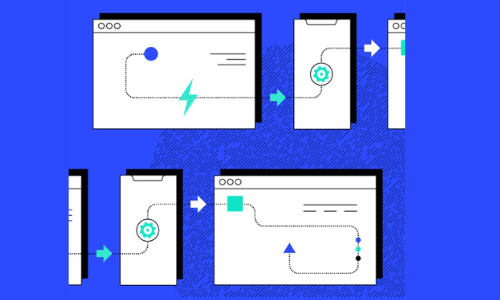Without the right processes in place, an office’s organization can quickly devolve into chaos, leaving employees feeling overwhelmed and scatter-brained. Implementing the best accounting workflow software will increase productivity and efficiency at your accounting firm. Here are the top 5 ways your organization can manage workflow.
5 ways to manage workflow at your accounting firm
When evaluating your firm’s workflow processes, a good place to start is to take inventory of the inefficiencies that need to be solved for your firm to start creating your own customized workflow improvement prioritization plan. Creating a benchmark of where you’re at is a good way to know where you need to go. Once you’ve completed that, jump right into our top 5 list:
1. Eliminate reliance on spreadsheets and sticky notes to manage tasks
While best practices indicate getting rid of sticky notes will help increase efficiency, realistically we understand that sometimes jotting something down on a sticky note isn’t the end of the world. However, if your entire workflow and job productivity is based solely on an intricate system of jumbled sticky notes spread all over, it’s time to make a change.
Aside from being difficult to find information and keep track of tasks, relying on sticky notes poses a security issue as well—that’s why it’s important to never write sensitive data (like passwords) on a sticky note. It could very easily fall into the wrong hands!
There is a time and place for spreadsheets, but putting your accounting firm’s entire structure and management in the hands of a spreadsheet is not a good idea. Not only is it difficult to manage, but you’re likely working harder instead of smarter. Replace the sticky notes and the spreadsheets with an all-in-one workflow management solution.
2. Reduce time spent tracking email communications by turning emails into tasks
How does your accounting firm use email? Most likely, it looks a lot like back-and-forth communication between clients, receiving important documents, and managing clients who email when something’s on fire.
That’s a lot to keep track of and a lot to remember. Using common email features like folders and labels can help manage this mountain of email, but it can only go so far. Instead, imagine a world where you receive an email from a client asking for something, and straight from that email you can create a task from it. That is what’s possible with the right accounting workflow management tool.
Additionally, imagine being able to see every single email sent back-and-forth between a client and your firm in one place, rather than having to search through your seemingly endless email inbox. Oh, and with workflow software, you can also manage your email directly from the software as well.
3. Decrease mental load and free personal capacity through the automation of tasks
Manually keeping track of tasks, having to remember what’s going on with certain projects, and constant tool switching can keep you from focusing on getting the actual work done. Automating these repeatable and menial (yet important) tasks can help free up a lot of time and alleviate your mental burden.
In all accounting firms, there are tasks that need to be done the same way every time—with automation, you can set up the parameters and then simply let it run in the background. That way, when a certain task is finished, it’s automatically pushed to the next step, without forcing you to set it up manually. For example, anytime a return is submitted, it can automatically be sent to review without the need for someone to manually assign it. Imagine how many hours per week you could save with automation! About 94% of accountants believe automation can help with any business task at their firm, according to a Sage Practice of Now report.
4. Stop jumping between tools to track time spent on tasks
Time is everything when it comes to accounting work and anything you can do to optimize your time, will lead to higher productivity and in turn increase profits. Don’t waste time switching between tools to track time and create manual invoices—instead, track time per task directly through accounting workflow software.
5. Empower and retain staff by making their lives easier with cloud-based tools
Remote working, working on the go, and keeping information all in one place is easy when you have cloud-based accounting workflow software. In today’s modern working landscape, flexibility is a must for offices looking to hire and retain talented employees. Anything an employer can do to make work easier and better for staff will pay off in the long run.
Without effective workflow at your accounting firm, managing even the smallest task can quickly become overwhelming. Implement these 5 tips today and tighten up workflow at your accounting firm.








Get Our Latest Updates and News by Subscribing.
Join our email list for offers, and industry leading articles and content.